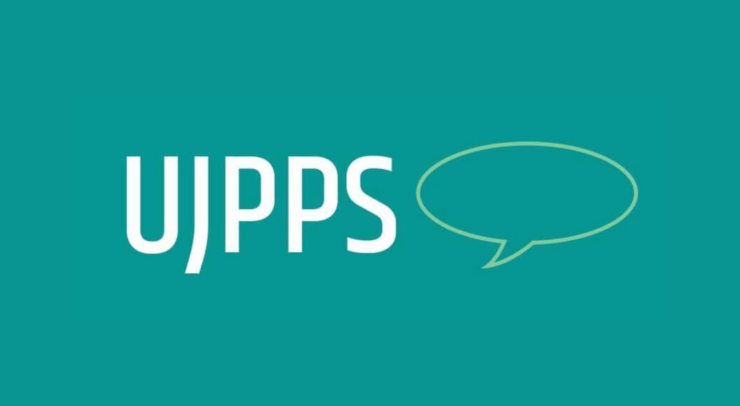The Undergraduate Journal of Politics, Policy and Society
At the U of O, student journals take several forms, magazine and blogs, print and digital, traditional or with a twist. The Undergraduate Journal of Politics, Policy and Society (UJPPS) at the faculty of social science, takes the form of a course.
FSS 4100, the course code for UJPPS, is taught by Professor Daniel Stockemer, a full-time professor at the University of Ottawa since 2010 and Konrad Research Chair in Empirical Democracy Studies.
The Fulcrum came in contact with UJPPS during their celebration of their sixth issue launch titled, Polarization, Cohesion, Trust, and institutions in an era of polycrises. There, we discovered some history behind how the course came together as a journal.
“I was excited to message the author whose paper I worked on to tell them ‘your paper is published!’” said Nora Afifi, a fifth-year international development student, “It was also nice to advocate and tell people to read the articles. A lot of the authors couldn’t make it to the actual launch because they lived in different countries so…”
This exciting and unique student experience was the ingenious idea of the first set of students in the course, who also happened to be the last editorial team of the journal previously called Trouble Obsessionnel Politique (TOPO).
Trouble Obsessionnel Politique (TOPO) was a student journal that was struggling to maintain continuity- all of its editorial team was graduating and it was struggling to fill in the ranks with new people.
“Once the editorial team graduated, there were not enough students who wanted to do it or who wanted to do it seriously. They couldn’t guarantee that it would go on every year.” Stockemer recalled, “They approached me and we had a couple discussions. And this idea of this journal class came about at the time.”
After speaking with the dean, the idea was approved and UJPPS was born. In 2018, after getting faculty as well as senate approval, FSS 4100, or UJPPS, was ready for its first set of students.
The idea behind UJPPS is simple.
Every year, students in the course come up with a topic for a special issue and send a call for submissions to a couple hundred universities. While waiting for responses, the class learns skills that equip them to handle the publishing process: how to write an article, what the editing process looks like, how to apply some theoretical concepts to reviewing papers and more.
Once submissions come in, the class splits into editors and reviewers: the reviewers review the papers and the editors decide which papers get accepted as well as look over revisions and copy editing. Each article is reviewed by different reviewers two to three times and the process is blind to the authors.
While the predecessor of UJPPS only published papers from the U of O, UJPPS call for submissions ensures it gets papers from all over the world.
“[We’ve got papers from] everywhere. We’ve got from Pakistan, we’ve got from Australia,” said Stockemer, “This year, we published two pieces from Singapore.”
The course is limited to members of the faculty of social science with emails advertising the course typically going out in August.
It is possible to get special permission to take the course, but it is the same rigorous process anyone would have to take if they were interested in taking a reserved course with a different faculty- there is no guarantee of acceptance into the course.
“It’s popular, but I already always have around 20 students, so it’s not like [too popular]”. Stockemer remarked. “It’s a poli sci journal … I’ve had people from psychology, but mainly it’s [students from] political science, public administration, conflict studies, sociology, anthropology. Those who take it love it a lot ”
UJPPS plays important roles at the U of O as both a course and a journal.
As a journal, it gives students the power and agency they need to obtain knowledge from their peers all over the world. They see and read the works of their counterparts around the globe and this stimulates their desire to explore diverse topics or opportunities in the academic world.
“One thing that was interesting was getting submissions from students around the world. Reading those articles, I learned a lot from the research topics. Some topics were not areas that I had known about or had been exposed to before.” Grace Kim-Shin, a fourth-year political science student, commented, “I feel like we often don’t get enough information in our undergrad about academic publishing. [Being a part of the editorial team] was great, especially if you are interested in research, and graduate school.”
As a class, it gives students the opportunity to learn and be involved in the publishing process, something that undergraduate students typically have little access to. They get the opportunity to be a part of producing knowledge rather than just consuming it. They also develop a critical mindset.
“It was a lot of back and forth, kind of tedious but I loved it. It is a great course for people who want to do a masters program.” said Danielle Maillet-Goodfellow, a fifth-year political science student.
“It was so unconventional for a fourth-year university course. It was very hands-on learning as you go. It was also really interesting to be almost absorbed into the academic community: We got to go to an academic conference and we had some masters students come in and talk about the process to us. It really gave us insight that you don’t get if you don’t know anyone doing a masters degree.”
The best place to find out more about UJPPS is their website. Their next call to submissions is in September and their previous publishings are available on both their website and through a Google Scholar search.








